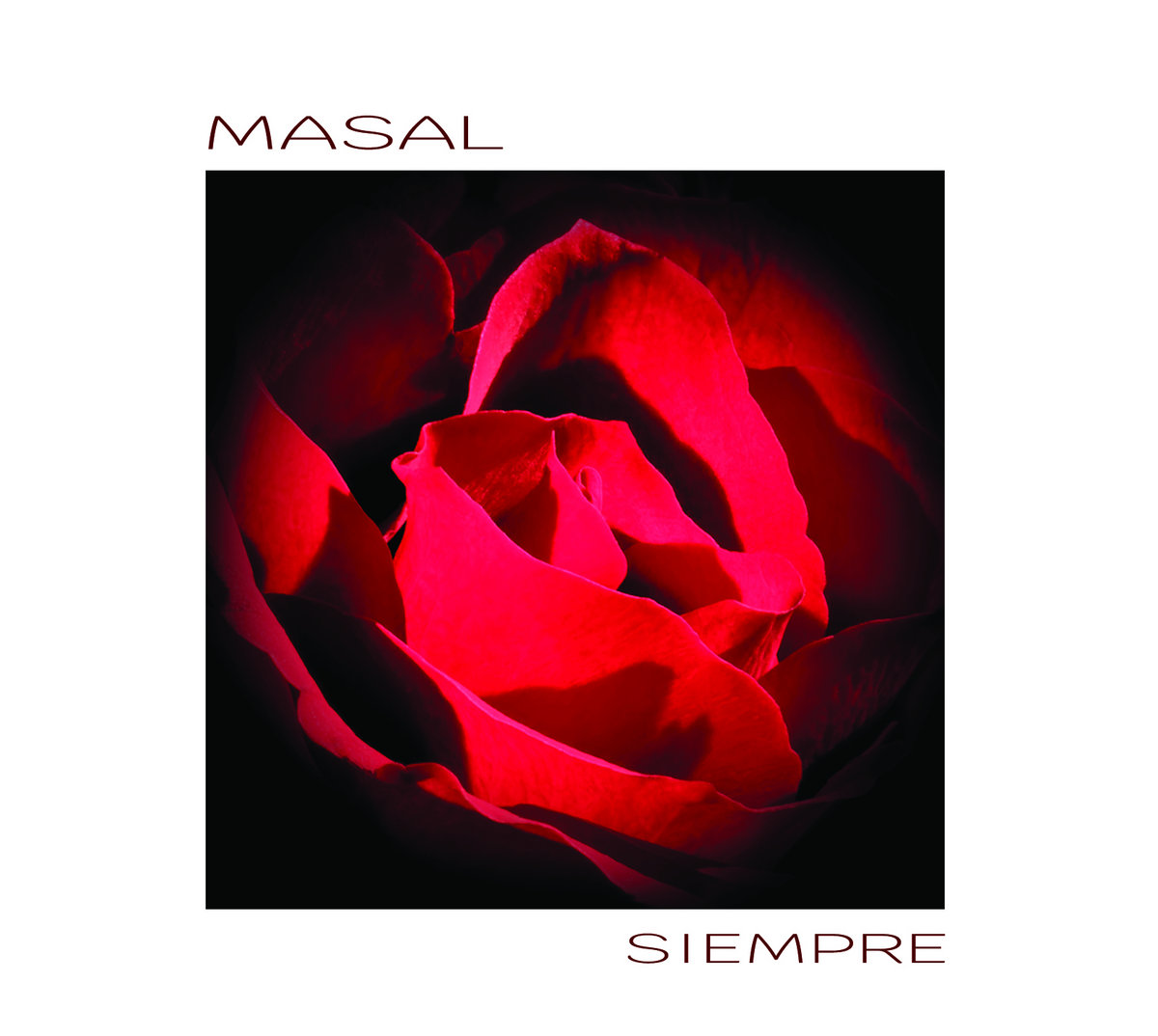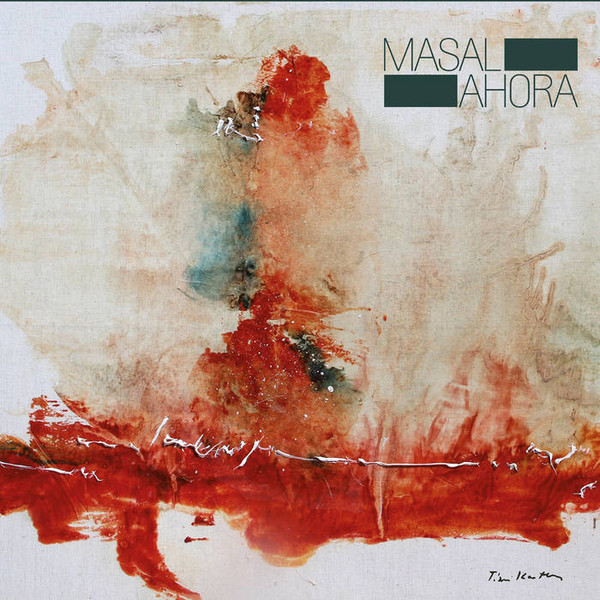
Exposé Online
What's old
Exposé print issues (1993-2011)
- 1 (October 1993)
- 2 (February 1994)
- 3 (May 1994)
- 4 (August 1994)
- 5 (October 1994)
- 6 (March 1995)
- 7 (July 1995)
- 8 (November 1995)
- 9 (March 1996)
- 10 (August 1996)
- 11 (February 1997)
- 12 (May 1997)
- 13 (October 1997)
- 14 (February 1998)
- 15 (July 1998)
- 16 (January 1999)
- 17 (April 1999)
- 18 (November 1999)
- 19 (May 2000)
- 20 (October 2000)
- 21 (March 2001)
- 22 (July 2001)
- 23 (December 2001)
- 24 (April 2002)
- 25 (September 2002)
- 26 (February 2003)
- 27 (August 2003)
- 28 (December 2003)
- 29 (April 2004)
- 30 (September 2004)
- 31 (March 2005)
- 32 (September 2005)
- 33 (May 2006)
- 34 (March 2007)
- 35 (January 2008)
- 36 (October 2008)
- 37 (July 2009)
- 38 (July 2010)
- 39 (Summer 2011)
Reviews
Masal — Siempre
(Bandcamp no#, 2024, CD / DL)
Masal — Ahora
(L'enclume ENC-0 05 CD, 2022, CD)
by Peter Thelen, Published 2025-01-07


French composer and multi-instrumentalist Jean-Paul Prat formed Masal in 1973, although it would be another eleven years before a recording would emerge from the band, a twelve-piece mini-orchestra if you will, credited to Prat himself, although in addition to composing the 42-minute piece, Prat plays drums, piano, and sings (though like the two albums under review here, it’s basically all instrumental). A cassette release came out in 1990, Sans Peur de T'appartenir, one side of which was included on the CD release of Masal a few years later. In 2009 the group Masal was reborn, though it’s a much leaner band at that point, spared of all its excesses, and they have kept a regular release schedule in the years since. Ahora (2022) and Siempre (2024) are the latest two releases from the group, both of which show the group membership steadily increasing. On both releases Jean-Paul Prat composes everything, and plays piano and keyboards, his son Jean Prat plays drums, percussion, synthesizer, xylophone, and mixing, Philippe Bussonnet (Magma, One Shot) plays bass, while other players round out the sound on guitar, saxes, bassoon, marimba, vibraphone, harp; and on Siempre we have many additional players on flute, clarinet, bass clarinet, oboe, trumpet and trombone, and mandolin, much like a small woodwind chamber orchestra.
The opening track on Ahora (translation: Now) “Printemps Tardif” is a powerful starter, clearly illustrating the complexity of the compositions and arrangements that follow — very angular, perhaps rooted somewhere in the jazz idiom, stronly informed by chamber sensibilities. “Danse Dense” continues onward in a more orchestrated way, the use of marimba, xylophone and vibraphone leaves some strong hints of The Grand Wazoo in its wake. Throughout, JP’s piano is the glue that holds everything together, like on the twelve-minute “Aquilon,” with its two minute piano intro, followed by the entry of bass, saxes, drums, bassoon, and more. Perhaps the standout on Ahora is the nine-minute “Shoot!,“ a piece that builds slowly over its duration, where JP plays guitar, with Édouard Poliquin-Michaud on xylophone and vibraphone with some amazing bassoon and horn arrangements. The swinging “Danse des Lucioles” is another tune reminiscent of the Zappa canon, a busy and complex tune that’s over and done in under seven minutes. The sidelong album closer “Sept Perles de Mer” gets off to a brisk jazzy start, but at around a minute in starts a process of weaving in and out, jumping to a new idea every minute or two, almost like a chain of ideas, sometimes veering closer to chamber concepts, other times seeming to go full on orchestral jazz, and occasionally going back to the opening theme. A truly beautiful piece if there ever was one.
If one listens to Siempre following the final track on Ahora (assuming it’s played in running order), the sound is definitely more rocking, “TGV pour Paradis” offers a big band horn rock sound that jumps right out of the speakers, with a wicked guitar solo from Baptiste Ferrandis. Next comes “Feu!,” ten minutes of “fire” indeed, ratcheting up the energy and complexity as it proceeds along its path, changing keys and meter with regular frequency, a true masterpiece of angular urgency. So why the change from the previous album? Most of these pieces were composed and arranged by JP Prat between 1974 and 1985 but were never recorded at that time, so with Siempre (translates to: Always) he’s gone back in time to rescue these compositions for an exquisite performance by the ‘new’ Masal group. After all that fire, we cool things down with “Danse de l'Eau,” starting out as a chamber oriented piece until the drums step in and give it some well deserved groove. The piano opening of “Isami” is one of the most memorable moments on the album, as multiple saxes and other woodwinds and bass slowly join in to elaborate on the stunning and unforgettably haunting melody. No drums, no flashy guitar solos, this is nothing at all like the two opening cuts. That’s really the point, some variety and beauty to offset the manic pace of the first two. “Des Flots d'Eau Vive” continues along similar lines, the piano intro defines the melody as the other instruments find their way into the mix, often with eerie results, with oboe, flute, and clarinet making a significant contribution, but like the title, the piece is constantly evolving over its near nineteen-minute duration. For the final cut, anyone with one drop of French blood in their system will recognize it immediately, an instrumental jazz arrangement (piano, flugelhorn and bass) of “La Marseillaise,” the French national anthem, but unlike any you may have heard before. These are two recordings that truly capture the imagination — who needs words?
Filed under: New releases, 2024 releases, 2022 releases
Related artist(s): Jean-Paul Prat / Masal
More info
http://masal.bandcamp.com/album/ahora
http://masal.bandcamp.com/album/siempre
What's new
These are the most recent changes made to artists, releases, and articles.
- Review: Tin Pan Alley - Tin Pan Alley
Published 2026-03-05 - Release: The Stratos Ensemble - Freeing Form
Updated 2026-03-04 23:06:09 - Review: LeoNero - Monitor
Published 2026-03-04 - Review: Sterbus - Black and Gold
Published 2026-03-03 - Release: Janel Leppin's Ensemble Volcanic Ash - Pluto in Aquarius
Updated 2026-03-02 15:06:51 - Release: Janel Leppin - Slowly Melting
Updated 2026-03-02 15:05:27 - Release: Alister Spence - Always Ever
Updated 2026-03-02 15:04:11 - Release: Let Spin - I Am Alien
Updated 2026-03-02 15:02:41 - Review: Falter Bramnk - Vinyland Odyssee
Published 2026-03-02 - Review: Exit - Dove Va la Tua Strada?
Published 2026-03-01 - Review: Steve Tibbetts - Close
Published 2026-02-28 - Release: We Stood Like Kings - Pinocchio
Updated 2026-02-27 19:24:02 - Release: Stephen Grew - Pianoply
Updated 2026-02-27 19:20:11 - Release: Thierry Zaboitzeff - Artefacts
Updated 2026-02-27 00:16:46 - Review: Kevin Kastning - Codex I & Codex II
Published 2026-02-27 - Release: Zan Zone - The Rock Is Still Rollin'
Updated 2026-02-26 23:26:09 - Release: The Leemoo Gang - A Family Business
Updated 2026-02-26 23:07:29 - Release: Ciolkowska - Bomba Nastoyashchego
Updated 2026-02-26 13:08:55 - Review: Immensity Crumb - Chamber Music for Sleeping Giants
Published 2026-02-26
